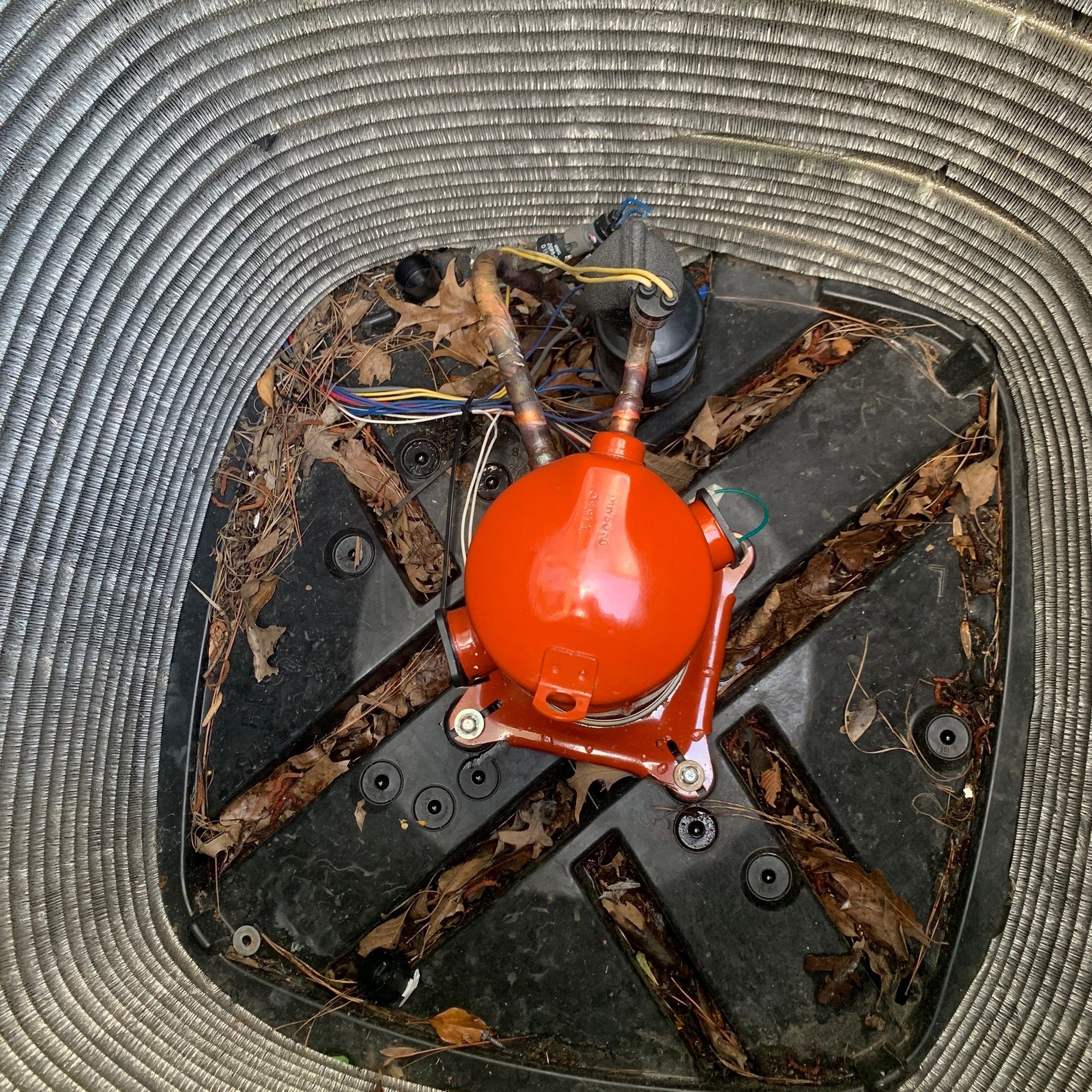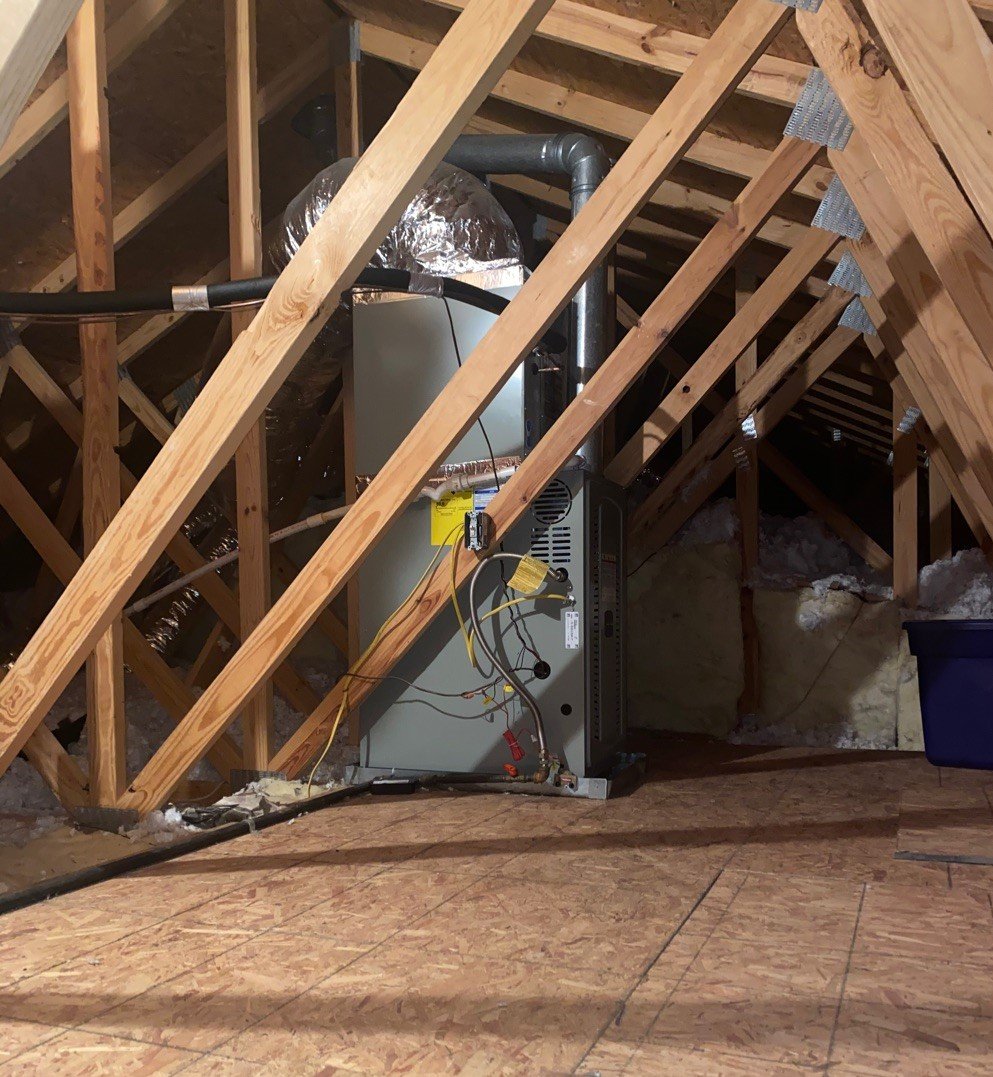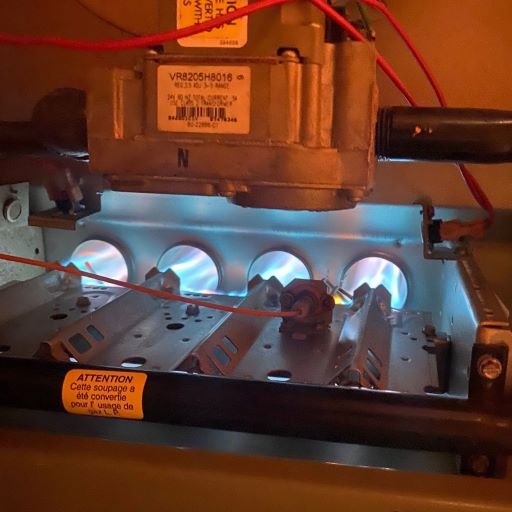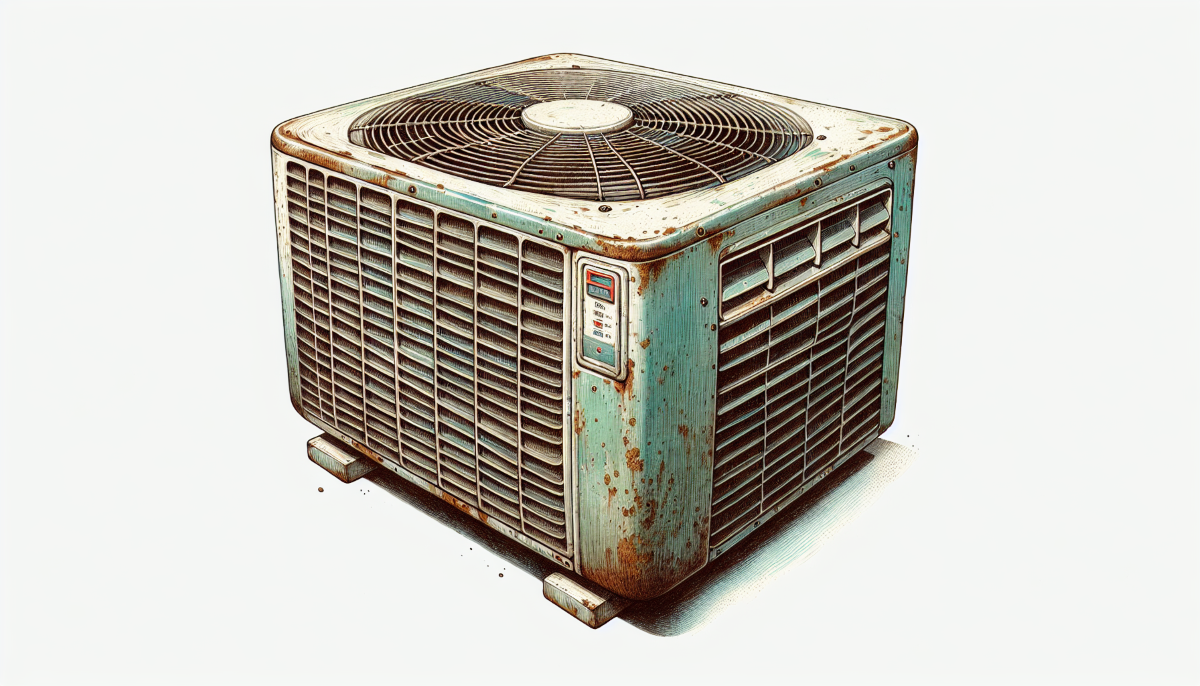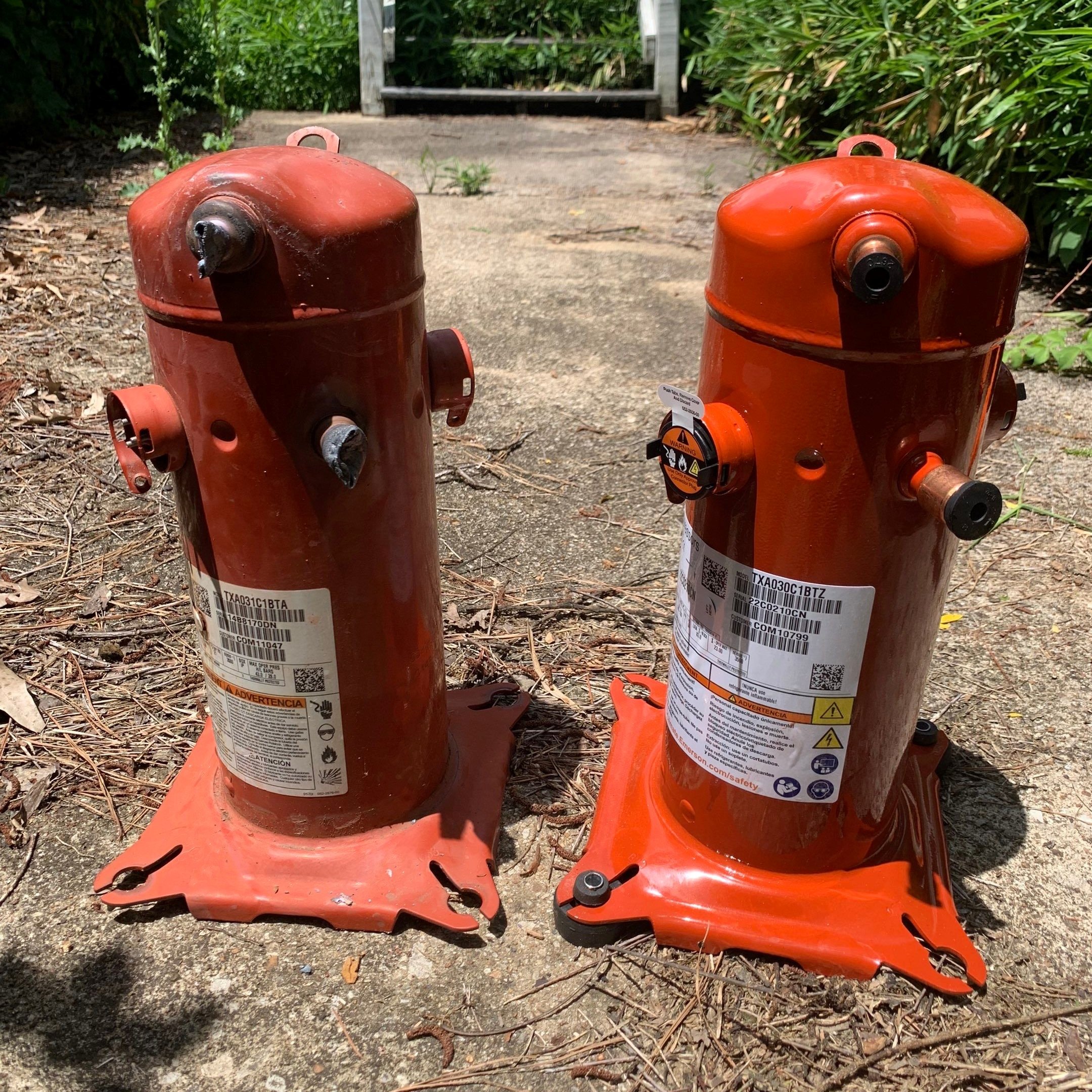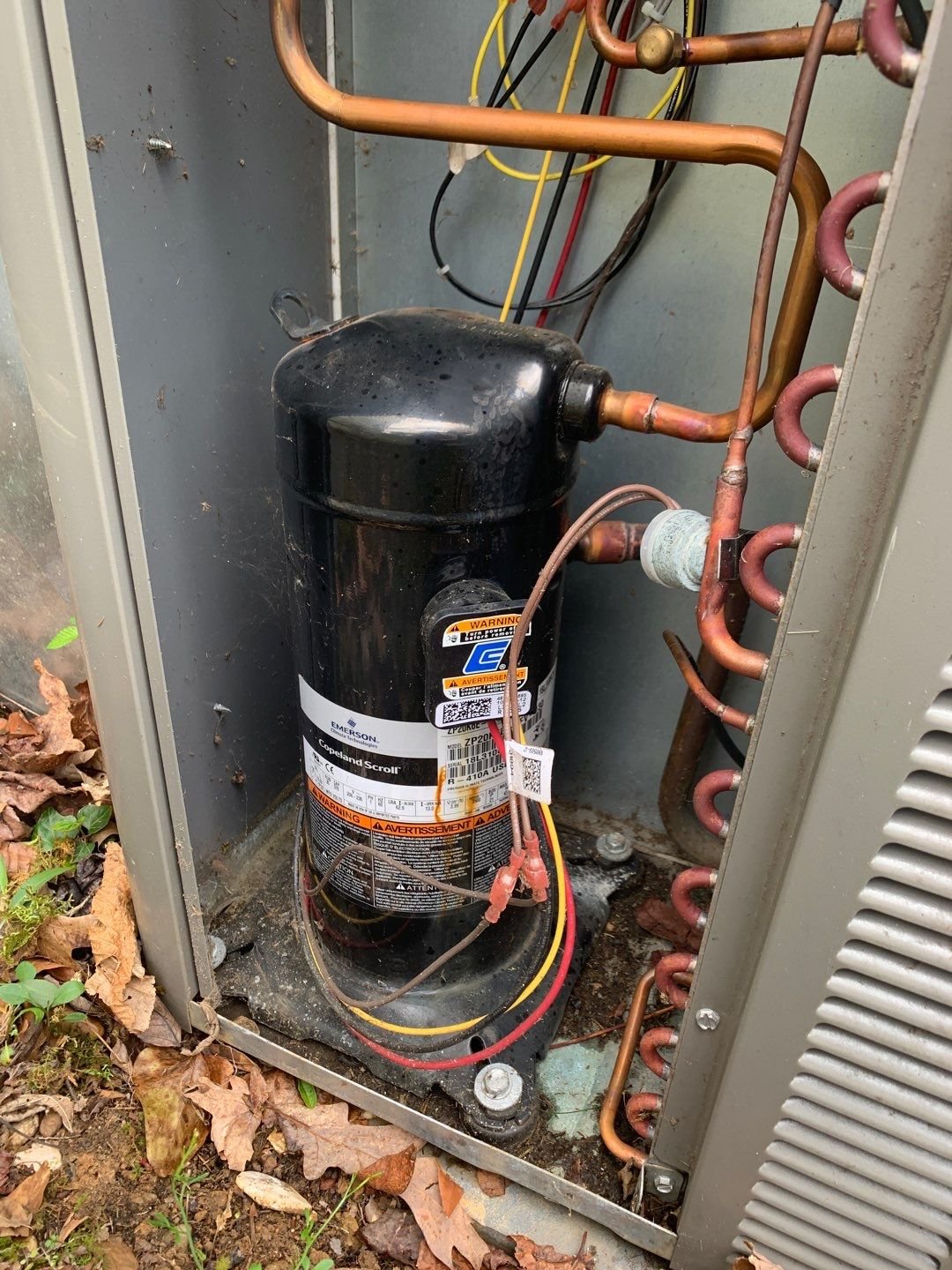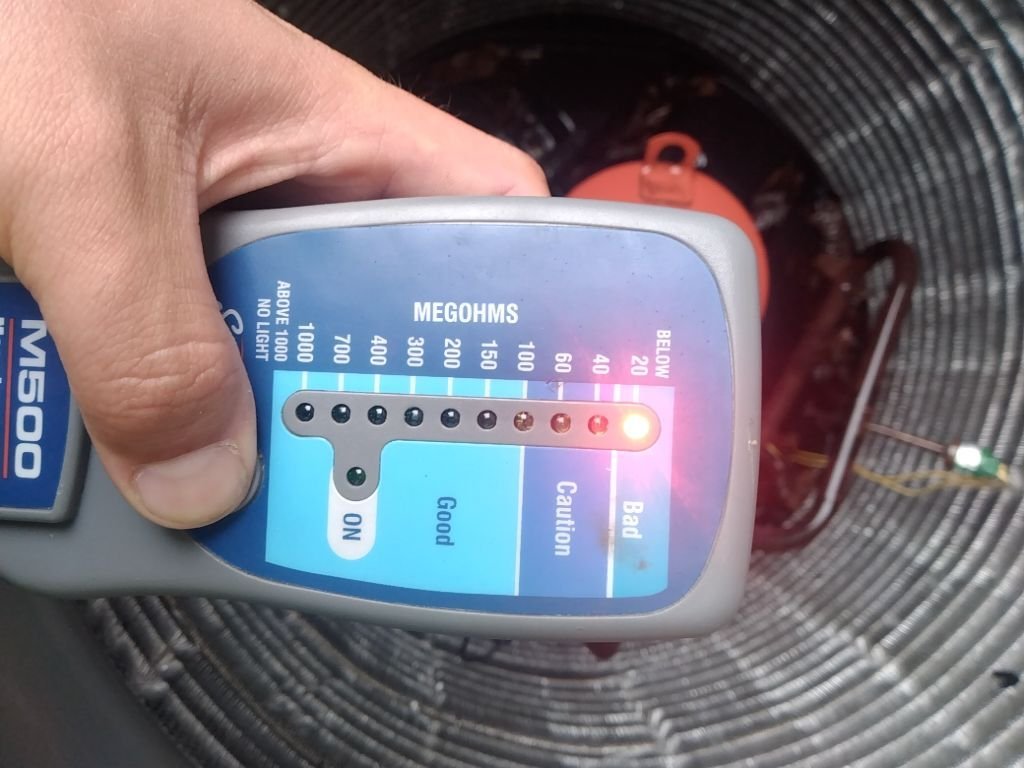Cost to Replace AC Compressor: A 2024 Price Breakdown
Wondering about the cost to replace AC compressor in 2024? On average, homeowners spend between $800 to $2,800 for the complete replacement, including parts and labor. Factors such as compressor type, system efficiency, and installation complexity all play roles in the total expense.
In this article, we’ll provide a detailed breakdown of the cost to replace an AC compressor, to help you understand what influences the price tag and how to budget for this essential home repair.
Key Takeaways
The cost of replacing an AC compressor can range from $800 to $2,800, influenced by factors like compressor type, size and efficiency of the AC unit, and refrigerant type—with higher SEER ratings and variable-speed compressors being more expensive but also more efficient.
Additional factors impacting AC compressor replacement costs include the brand and warranty of the compressor, the size of the home, and the complexity of the HVAC system—with larger homes and more complex systems leading to higher costs.
Professional installation of an AC compressor is costly but essential for safety and warranty, with labor accounting for 30% to 50% of the overall cost. Homeowners must weigh the long-term benefits of a full system replacement against a simple repair, especially for older systems or those using obsolete R22 refrigerant.
Quick Links:
AC Compressor Replacement Costs: An Overview
The average AC compressor cost of replacing falls between $800 and $2,800. Although these figures may seem intimidating, they are influenced by a variety of factors such as the size of your AC unit, its efficiency rating (SEER), and the complexity of your system, which all contribute to the overall replacement cost.
For those of us who are not HVAC experts, the SEER (Seasonal Energy Efficiency Ratio) is the ratio of cooling output during a typical cooling season divided by the total electric energy input. Simply put, a higher SEER rating means a more efficient and costly compressor. But it’s not just about the compressor type or the SEER rating. We will break down the costs associated with different compressor types and refrigerant replacements to provide a clearer picture of the potential expenses.
Compressor Types and Their Costs
When it comes to compressors, there are three main types you will encounter:
Single-stage compressors: They are the least expensive option, but they have their drawbacks. They operate at full capacity whenever they’re running, leading to higher energy consumption and wear.
Two-stage compressors: They offer a higher level of efficiency compared to single-stage compressors. They have two cylinders, with the first one compressing the air and the second one further compressing it to a higher pressure.
Variable-speed compressors: They are the most expensive but also the most efficient. They adjust their speed to the cooling demand, resulting in consistent temperatures and lower energy bills.
The cost for the compressor part alone usually falls within the range of $600 to $1,200. However, keep in mind that variable-speed compressors require more complex installation, which can affect the total labor costs. These costs can vary significantly, from $1,500 to $3,000, depending on the complexity of the installation and the specific expertise required.
Now, let’s consider another major cost factor in AC compressor replacement – the refrigerant.
Refrigerant Replacement Costs
Refrigerant is the lifeblood of your air conditioning system. It absorbs heat from your home’s air and releases it outside, keeping your living space cool and comfortable. However, when replacing an AC compressor, all of the refrigerant must be replaced, leading to additional costs.
The cost of refrigerant varies greatly depending on the type used. R22 refrigerant, often used in older AC systems, ranges in cost between $50 and $80 per pound, making it more expensive than newer options like R-410A which costs between $15 to $50 per pound. A typical HVAC system requires between 6 to 12 pounds of refrigerant for a complete refill, with a full R22 recharge costing between $300 to $960.
Refilling refrigerant is a costly task, with R-114 costing around $600 and R22 reaching up to $2200. You might be curious about what factors can increase or decrease these costs. Let’s explore.
Factors Affecting AC Compressor Replacement Costs
Several factors can influence the final cost of replacing an AC compressor, including home size, HVAC system type, and brand and warranty considerations. Each of these factors plays a crucial role in determining the overall replacement cost.
The size of your home and the system requirements have a direct impact on the cost of the compressor because larger homes require larger AC units and compressors, leading to higher replacement costs. The type of HVAC system you have can also affect the cost as different systems have different compressor requirements.
Finally, the brand and warranty terms of your air conditioning system can significantly impact the final cost of replacing the compressor. We will delve into these factors to better comprehend their impact on the replacement cost.
Home Size and System Requirements
The size of your home and the system requirements are critical factors that influence the cost of an AC compressor replacement. An air conditioner typically requires about 20 BTUs (British Thermal Units) per square foot of living space to maintain comfortable cooling levels.
However, this isn’t a one-size-fits-all equation. Features such as:
Ceiling height
Construction materials
Insulation efficiency
Sun exposure
Number and quality of windows
Climate
Number of occupants
can affect the sizing of an AC unit, with taller ceilings and less efficient insulation materials requiring more BTUs. Sun exposure and the number and quality of windows can also affect AC size needs by potentially increasing the required BTUs due to heat gain. Even the climate you live in and the number of occupants can influence the BTU capacity needed for effective cooling.
Next, we will look at how the type of your HVAC system can influence the compressor replacement cost.
HVAC System Type
Your HVAC system type can significantly affect the cost of replacing an AC compressor. There are several types of HVAC systems, including:
Central air
Mini-split
Heat pump
Window units
Each type has its cost implications.
Central AC systems typically see compressor replacement costs between $800 to $2,800, whereas heat pump systems can range from $800 to $3,000. Mini-split AC systems have compressor replacement costs similar to heat pumps, while window AC units usually have the lowest compressor replacement costs, from $200 to $500. However, it’s important to note that for window units, it’s often more economical to replace the entire unit rather than just the compressor.
Lastly, we’ll examine how brand and warranty considerations can affect your AC compressor replacement costs.
Brand and Warranty Considerations
The brand of your AC compressor can significantly impact the cost of replacement due to factors like product pricing, availability, and compatibility requirements. For example, Goodman/Amana and York/Coleman compressors range up to $1,200 and $1,500 respectively, influenced by brand reputation, the availability of replacement parts, and labor requirements.
Another major factor to consider is the warranty. Here are some options to consider:
Manufacturer warranties often span 10 to 15 years, primarily covering parts.
Certain home warranties might cover the full cost of wear-and-tear damage.
Extended warranties can alleviate the cost burden of future replacements by covering parts and, in some cases, labor for additional years beyond the standard warranty.
Having discussed the cost factors, it’s time to examine the labor and installation costs.
Labor and Installation Costs
Labor and installation costs are significant components of the overall cost of replacing an AC compressor. The cost range for labor to install an AC compressor is typically between $75 and $150 per hour. Alternatively, a flat fee of $300 to $900 can be charged. This might seem steep, but remember that the job of replacing an AC compressor usually takes between 4 and 6 hours for total installation.
These labor costs typically account for 30% to 50% of the overall cost for the professional installation of an AC compressor. However, the final cost can be influenced by various factors, like the hourly rates or flat fees charged by the HVAC contractor. We will delve into these labor cost factors in greater detail.
Hourly Rates vs. Flat Fees
HVAC contractors typically charge between $75 to $150 per hour for smaller compressor replacement jobs, which factors into the overall cost to replace. This cost can add up quickly, especially for complex installations requiring more time.
On the other hand, some contractors may offer a flat fee for the entire job, which can be more cost-effective in some cases.
Factors Influencing Labor Costs
Several factors can influence the labor costs associated with replacing an AC compressor. One significant factor is the location of the unit. Labor costs for AC compressor replacement can increase if the unit is located in a difficult-to-reach place, necessitating additional time and specialized equipment.
Another factor affecting labor costs is the demand for HVAC services. During peak summer months, labor costs for replacing an AC compressor are often higher due to increased demand, with longer wait times and possibly higher rates.
The age of your HVAC system can also influence labor costs, as older systems may require more time for repairs or adjustments.
How do you decide between repairing or replacing your AC compressor? Let’s discover.
Repair vs. Replacement: Making the Right Decision
One of the most critical decisions homeowners face when dealing with a malfunctioning AC compressor is whether to repair or replace it. If your AC unit is more than a decade old, it may warrant a full system replacement rather than just repairing or replacing the compressor. An oversized or undersized AC system can also justify the replacement of the entire system for better long-term efficiency.
Making the right decision between repair and replacement depends on various factors, including the age and condition of your HVAC system. To aid in your decision-making, we’ll identify the signs that your AC compressor requires replacement and juxtapose the costs of repair and entire system replacement.
Signs Your AC Compressor Needs Replacement
Recognizing the signs of a failing AC compressor is essential to timely maintenance and can prevent further system damage. Strange noises from the AC unit, such as grinding, squealing, or clattering, can be indications of internal damage and potential compressor failure.
Another sign that your AC compressor may need replacement is a noticeable decrease in airflow from the AC unit. An unexpected spike in the electric bill can also be a sign of a failing compressor, as it forces the AC unit to run longer and decreases efficiency. If you’re experiencing these issues, it might be time to consider the costs associated with repair versus replacement.
Cost Comparison: Repair vs. Full System Replacement
When deciding between repair and replacement, it’s crucial to consider the costs associated with both options. Here are the estimated AC compressor repair costs and other related expenses:
Minor AC compressor repairs: $170 to $620
Significant replacements like the AC compressor: $800 to $2,400 (not including labor)
Replacing an entire central AC system: $3,250 to $12,586
Just replacing the compressor: $2,500 to $3,000
Replacing an entire central AC system can potentially offer a more updated and efficient new AC unit compared to just replacing the compressor.
If your HVAC system is nearing the end of its lifespan or is more than eight to 10 years old, replacing the entire system might be more economical than just replacing the compressor. It’s also worth noting that it’s more cost-efficient to replace the entire condenser or system than to replace compressors in R22 systems due to their obsolescence.
Next, consider whether to undertake a DIY AC compressor installation project or hire a professional for AC compressor replacement.
DIY vs. Professional AC Compressor Replacement
Dealing with a failing AC compressor might tempt some homeowners to take a DIY approach. While this can save on labor costs, it’s essential to understand the potential risks and challenges involved. On the other hand, hiring a professional HVAC contractor ensures the job is done correctly and safely, despite potential dependence on the contractor’s schedule and higher costs.
Should you tackle the task yourself or enlist the help of professionals? We’ll discuss the risks and challenges associated with DIY replacement and the advantages of employing a professional.
Risks and Challenges of DIY Replacement
While DIY AC compressor replacement might seem like a cost-effective solution, it comes with several risks and challenges. Handling refrigerant, dealing with electrical connections, and using specialized tools are just a few of the numerous challenges a DIY enthusiast might encounter when replacing an AC compressor. Moreover, DIY replacement can lead to warranty voiding, presenting an added financial risk if issues arise.
Not only does this process require a high degree of technical proficiency, but it can also be physically challenging as the compressor is heavy. Next, we’ll discuss the benefits that come with hiring a professional.
Benefits of Hiring a Professional
Hiring a professional HVAC technician has numerous benefits. These professionals have specialized training to handle hazardous materials properly and secure all connections effectively. Plus, professional installation ensures your AC system operates at peak efficiency and reduces the risk of future malfunctions due to improper setup.
Hiring a professional also offers comprehensive service with a detailed quote and thorough explanation of necessary repairs, providing homeowners with peace of mind. Additionally, professionals provide warranty coverage, enhancing the long-term security of the replacement job and potentially reducing future costs associated with the AC compressor.
Having weighed the pros and cons of DIY and professional replacement, let’s discuss some strategies to save money on AC compressor replacement.
Tips for Saving Money on AC Compressor Replacement
While it can be expensive to replace an AC compressor, there are several ways to save money on this substantial investment. From shopping around for competitive pricing to regular maintenance and system upgrades, there are several strategies to mitigate the costs associated with AC compressor replacement.
Exploring these strategies can help you make a more informed decision and potentially save a significant amount of money. We will explore these money-saving tips in greater detail.
Shopping Around for Competitive Pricing
One effective way to save money on AC compressor replacement is to shop around for competitive pricing. Acquiring quotes from several HVAC companies can lead to potential cost savings and a variety of brand options. This allows you to compare the costs and services offered by different companies, helping you find the best deal.
Routine Maintenance and System Upgrades
Routine maintenance, including AC compressor repair when needed, can extend the life of your AC compressor and prevent costly replacements. Here are some steps you can take to maintain your AC compressor:
Regularly check for leaks.
Listen for unusual noises.
Keep the outdoor unit clean.
Replace air filters regularly.
Protect the AC compressor from direct sunlight with shading.
Install a surge protector to prevent overheating and electrical damage.
By following these steps, you can prevent strain on the AC compressor and preserve its efficiency, thus extending the life of AC compressors in general.
Additionally, scheduling annual HVAC maintenance with a certified technician is crucial in maintaining the system’s integrity and preventing compressor failure. Not only does this routine maintenance prevent costly repairs or replacements, but it also ensures that your AC system operates at peak efficiency, saving you money on energy costs.
Summary
Understanding the cost of replacing an AC compressor is crucial to making an informed decision about your home’s cooling system. From the type of compressor and refrigerant used to labor costs and warranty considerations, numerous factors can significantly influence the overall replacement cost. By considering these factors and making informed decisions, you can ensure a comfortable living environment without breaking the bank.
Choosing between repair and replacement, DIY or professional services, is not an easy decision. But armed with the knowledge from this guide, you can navigate these choices with confidence. Remember, regular maintenance and system upgrades can save money in the long run, and hiring a professional can ensure a safe and efficient AC compressor replacement. Stay cool and make the right choice!
Frequently Asked Questions
Is it worth replacing compressor on AC unit?
It's worth noting that for an older AC unit (10+ years), buying a new air conditioner is often the best option due to the cost of replacing the compressor. For newer units (0-5 years), replacing the compressor, especially if it's still under warranty, makes sense. Replacing the compressor is often more affordable than installing a new HVAC system.
Why is replacing the car AC compressor so expensive?
Replacing a car AC compressor can be expensive due to the size of the AC system, which impacts the cost of the compressor. A larger AC system requires a bigger compressor, leading to higher costs for replacement.
How many years should an AC compressor last?
An AC compressor should last about 12-15 years, but it may be affected by factors like improper sizing and maintenance. Proper maintenance and having a correctly sized unit can help extend its lifespan.
How much does it cost to replace an air conditioner compressor?
The cost to replace a home AC compressor typically ranges from $800 to $2,800, with the parts costing between $450 to $1,500. Labor and material make up about 50% of the final bill.
What is the average cost to replace an AC compressor?
The average cost to replace an AC compressor ranges from $800 to $2,800.



